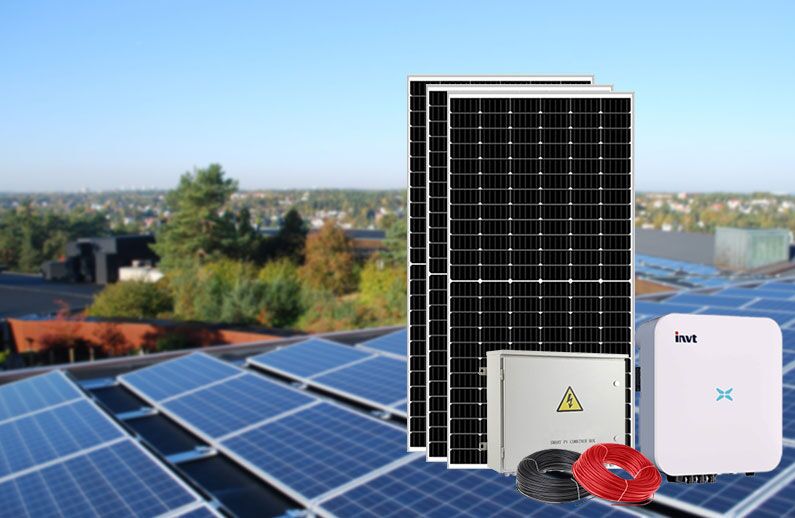Will Solar Panels Work In a Power Cut?
Jun 21, 2024
Solar panels alone cannot provide power during a power cut unless they are part of a system that includes a battery storage solution or a special inverter capable of operating independently of the grid. Here’s a detailed look at the different configurations and how they perform during a power outage:
On-Grid Solar Systems
How They Work:
Connection: These systems are directly connected to the local utility grid.
Operation: During normal operation, the solar panels generate electricity, which is used to power your home. Excess electricity is sent back to the grid, often earning you credits or compensation.
Power Cut Scenario: In the event of a power cut, on-grid systems automatically shut down for safety reasons (to protect utility workers from potential electric shocks).
Solution:
On-Grid systems require additional components to work during power cuts:
Battery Storage: Adding a battery to your system allows you to store excess solar energy, which can be used during a power outage.
Hybrid Inverter: These inverters can switch to battery power and operate independently of the grid during outages.
Off-Grid Solar Systems
How They Work:
Connection: These systems are not connected to the utility grid and are designed to be self-sufficient.
Components: They rely on batteries to store energy generated by the solar panels, ensuring power availability when there is no sunlight.
Power Cut Scenario: Off-grid systems continue to provide power during a grid outage since they are not dependent on the grid.
Solution:
Off-grid systems are inherently capable of providing power during outages due to their reliance on stored energy in batteries.
Hybrid Solar Systems
How They Work:
Connection: These systems combine the benefits of both grid-tied and off-grid systems.
Operation: They can be connected to the grid and have battery storage for backup power.
Power Cut Scenario: During a power outage, a hybrid system can switch to battery power, ensuring a continuous supply of electricity.
Solution:
Hybrid systems are ideal for ensuring power during outages while still being able to benefit from grid connectivity and net metering.
Key Components for Backup Power
1. Batteries
Function: Store excess energy generated by solar panels.
Types: Lead-acid, lithium-ion, and other advanced battery technologies.
Consideration: Size and capacity of the battery should match your energy consumption needs.
2. Inverters
Function: Convert DC electricity generated by solar panels to AC electricity used by home appliances.
Types:
Standard Inverter: Works only when connected to the grid.
Hybrid Inverter: Can switch to battery power and operate independently during a power outage.
3. Charge Controllers
Function: Regulate the amount of charge going into the batteries to prevent overcharging.
Solar panels alone will not provide power during a power cut if you have a standard grid-tied system. To ensure your solar panels work during outages, you need either an off-grid system, a grid-tied system with battery storage, or a hybrid system. For a reliable backup solution, investing in a battery storage system and a hybrid inverter is essential. This setup not only provides power during outages but also maximizes the use of renewable energy generated by your solar panels.


 Network Supported
Network Supported